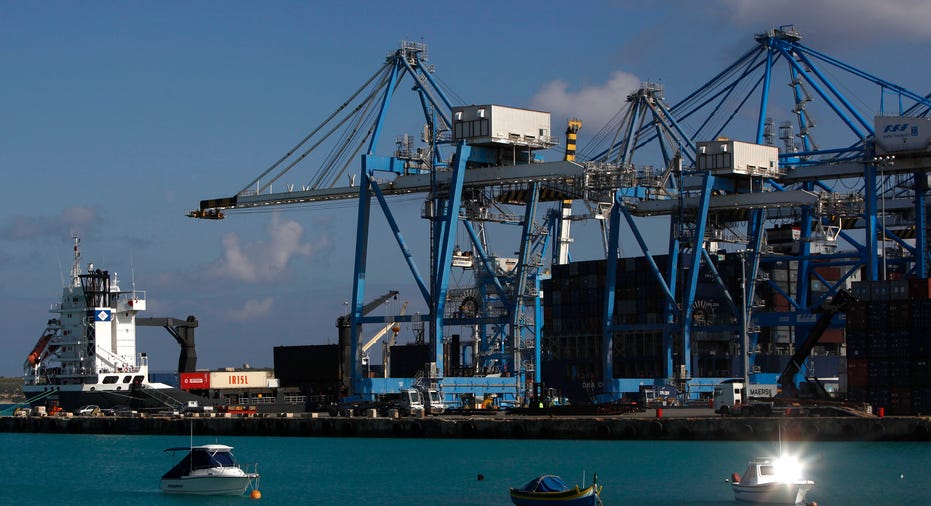The Ins and Outs of Becoming an Importer and Distributor

When Victoria Neale first tasted Veri Peri in the summer of 2009, she had no idea that the small bottle of African Bird’s Eye Chili emulsion would catapult her into small business ownership.
Neale said at the time her boyfriend had a personal stash of the product, which he had brought back to New York from South Africa. As friends and family depleted their supply, the couple toyed with the idea of importing it from its South African manufacturer, All Joy.
“We reached out to the CEO and asked if he would be willing to discuss importing to the states and letting us distribute it,” said Neale, “We were honest about not being in the food industry at the time. But, he was willing to give us a chance.”
With All Joy’s approval, Neale set out on the path to becoming an importer and distributor. She received her first shipment of Veri Peri in January of this year, but, she said, not before getting a major education in the rules and regulations of importing a product into the United States and preparing it for distribution.
One of those lessons: budding entrepreneurs considering an importing and distribution business need to take specific precautions to ensure that the products they plan to bring stateside meet U.S. standards.
“Before signing any contracts with a foreign manufacturer or exporter, make sure that you can actually export your chosen commodities out of the country of origin into the United States,” warned attorney Robert Zarco of Zarco, Einhorn, Salkowski & Brito P.A.
This includes making sure that the product does not violate trademarks or copyrights and that it meets the requirement of U.S. Customs and Border Protection.
With Veri Peri, it took Neale almost a year to get the product approved by the Food and Drug Administration.
“The FDA filing process was tremendous and in-depth,” said Neale, “They want to know ingredients, where they are coming from, the PH levels, the heat you are mixing ingredients at, what materials the instruments you are using to mix things are made of, even the thickness of the glass.”
Products should also be tested for safety.
“Have a product design evaluation by a Consumer Product Safety Commission-approved lab to make sure you are not importing something illegal, that is banned, or that may have special testing required before it’s imported,” said Edie Tolchin, sourcing consultant and founder of EGT Global Trading.
Even product packaging may need to change. Before Neale could get her first thousand cases of Veri Peri, she had to redesign the label.
“In South Africa nutritional facts are in a different formula,” said Neale. “We had to change it into what the American consumer would recognize and put the U.S. bar code on there.”
And, there is no guarantee that the product an entrepreneur is expecting is the product he or she will receive. Tolchin recommends working with an inspection agency in the country of origin that will review the product prior to shipment.
“I prepare final shipment inspection criteria that touches on functionality, appearance, and packaging,” said Tolchin.
Of course, before committing to a manufacturer there are contract terms to consider. Attorney Robert Zarco warns that entrepreneurs need to figure out “choice of law and jurisdiction,” so if there is a dispute, the manufacturer and entrepreneur will know where the case will be litigated. Entrepreneurs should detail what currency the transactions will take place in and have assurance from the manufacturer that goods will be delivered in a timely manner.
Contracts also need to include terms dealing with right to renew and territory granting concerns.
“Depending on the product, you may be able to obtain an exclusive contract and be the sole distributor of that product in the United States,” said Zarco.
Shipping terms are another important part of a contract.
“Incoterms, which consists of 11 international trade terms used in sales contracts, define the responsibilities of each party in regards to costs and risks at specific points in the transaction. These terms allocate the responsibility for arranging transportation, insurance, and customs clearance between the buyers and sellers,” said Marcello Medini, Logistics Consultant at PNG Logistics.
In addition to figuring out shipping terms and which of the U.S.’s 329 ports a shipment will come into, entrepreneurs need to hire a customs broker. They conduct business on behalf of the importer and handle important steps, such as ensuring that an Importer Security Filing is properly filled out and determining the Harmonized Tariff Schedule.
At first Neale attempted to handle Veri Peri’s shipping herself, but the process became overwhelming. “Shipping from South Africa, there is a lot of room for error. There is crime, theft and a level of corruption,” said Neale. She hired a company to handle her shipping needs, and said even then was surprised at how long the process took.
“Because of our shoestring budget, we went on the ‘slow boat,’” said Neale, “From start to finish the whole thing took 8 weeks. We were expecting 4 to 6. The shipment ended up going to Brazil and sat there for a week and a half.”
Now that Neale has her product stateside, she said the next challenge she is focusing on is getting Veri Peri into large supermarkets.



















